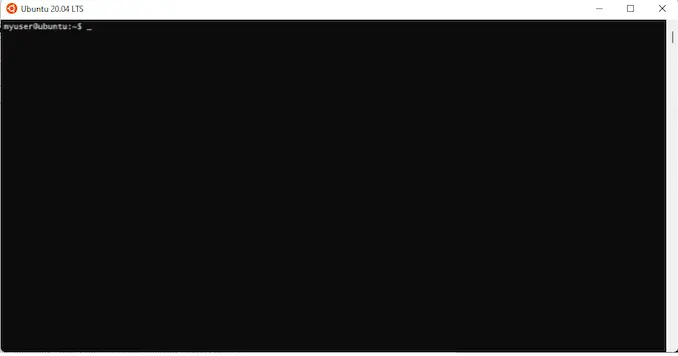Quick Start Guide
This section describes how to quickly install CrafterCMS and start crafting your experiences. The steps listed below is intended to help the user start using CrafterCMS for development or evaluation only.
To setup CrafterCMS:
Install from the prebuilt binaries download
Note
For Windows Users
Windows users needs to install Windows Subsystem for Linux (WSL) by following the instructions here which will enable the required optional components, download the latest Linux kernel, set WSL 2 as your default, and install Ubuntu Linux for you.All commands below needs to be executed in a WSL 2 terminal. Also, all items that needs to be downloaded and installed needs to be in WSL 2.

All the steps below applies to installing CrafterCMS via the WSL terminal. See here for detailed instructions on installing CrafterCMS on Windows via WSL
CrafterCMS may also be run via Docker. Note that the preferred method of installing and running CrafterCMS is via the binary archive through WSL as described here.
Installing CrafterCMS from Prebuilt Binaries
Here are the steps to start using CrafterCMS for development or evaluation by installing CrafterCMS from the binary archivedownload:
Download and install Java 11
Download and install Java JDK 11 (either Oracle or OpenJDK).
Make sure that you have a
JAVA_HOMEenvironment variable that points to the root of the JDK install directory. See here for more information on theJAVA_HOMEenvironment variableDownload CrafterCMS binary
Download the CrafterCMS install binary file from https://craftercms.org/downloads
Select
crafter-cms-authoring-VERSION.tar.gz. The.tar.gzfile will install a fully functional authoring instance. Out of the box, the authoring instance uses a local directory as the repository and an embedded database, which allows a quick and easy set up for local development.Extract the CrafterCMS binaries
Extract the contents in any directory.
tar -zxvf crafter-cms-authoring-VERSION.tar.gz -C /tmp/extract_to_some_directory/
The extracted files should look like this:
{Crafter-CMS-unzip-directory} |--crafter/ |--LICENSE |--README.txt |--bin/ |--data/ |--ssh/ |--config |--known-hostswhere:
The
binfolder contains various scripts for starting, stopping, etc.The
data/sshfolder is the default ssh config location Crafter Studio and Crafter Deployer reads from
To change the default location, simply change the value ofCRAFTER_SSH_CONFIGin the{Crafter-CMS-unzip-directory}/crafter/bin/crafter-setenv.shfileThe
known-hostsfile contains key fingerprints for GitHub, GitLab and BitBucket and is where you can add additional fingerprints for other providers as needed
Start CrafterCMS
To start CrafterCMS:
From the command line, navigate to the
{Crafter-CMS-unzip-directory}/crafter/bin/directory, and execute the startup script:./startup.sh
Note
It takes a few seconds for CrafterCMS to startup and takes longer to startup the very first time you startup CrafterCMS.
To stop CrafterCMS:
From the command line, navigate to the
{Crafter-CMS-unzip-directory}/crafter/bin/directory, and execute the shutdown script:./shutdown.sh
Access Crafter Studio
In your browser, go to
http://localhost:8080/studio
Login with the following:
username: admin
password: admin
After logging in, you should be redirected to the
Sitesscreen, and you’re now ready to create your first experience!